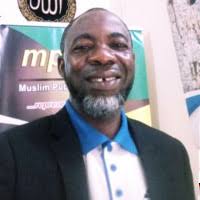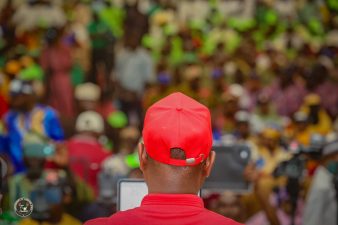By ABDULWAREES SOLANKE
Since the colonial era, the stories often told of most Sub-Saharan African countries, Asia and the Pacific, as well as the Caribbean, were primarily subjective.
I refer to such stories as negative SWOC/T stories. They were stories of their sins and sicknesses, wars, oddities, and catastrophes or tragedies
Africa was usually grotesquely painted as the Dark Continent. Granted that many Sub-Saharan African countries were slow in catching up with western civilization, this pejorative perception of Africa does not in any way do justice to the vast opportunities and resources of the continent, the very reason for which the western imperialist nations invaded Africa to access raw materials to feed their factories during the industrial revolution.
It does not do justice to the fact that Africa was the continent that provided the needed labour on their farms and plantations as many sons of Africa were shipped to Europe during the era of slavery.
It does not do justice to the fact that most problems of Africa that manifest in military takeover of governments and political instability, corruption, exploitation and underdevelopment were precipitated by European nations with imperialist objectives in the scramble and partition of the African continent and the neo-colonial agenda of maintaining imperialism through puppet regimes
In fact, multinational transnational corporations were responsible for the many development challenges confronting the continent today.
In telling stories about Africa as well as Asia therefore, we first need to interrogate the circumstances of their contemporary evolution before using the Western standard, the Euro-America lens and depressing media portrayal.
We need to change the negative and depressing narratives about our continents to ones that will speedily facilitate sustainable development in Africa and Asia.
We need to accept that telling good stories of ourselves is a TRUST that must not be betrayed if we care much about sustainable development for the sake of future generations.
BETWEEN UN 8 MDGs 17 SDGs
Let me at this juncture make some observations peculiar to public and development policy processes. First, The Mass Media occupy a vital position in policy cycle, planning and implementation, monitoring and evaluation and that the success of any development policy or initiative depends on how the mass media frame and mainstream issues or problems and how they set the agenda in the public sphere.
The UN 8 MDGs and 17 SDGs simplify all policy and agenda for development planning for all countries. The objectives of these agenda are all about facilitating change to improve the quality of life of all citizens, especially in the poorer nations of sub-Saharan Africa, the Asia-Pacific and the Caribbean.
They symbolize a global commitment to ensure that development policy processes and practices not only satisfy citizens’ existential demands, but also that in the process of exploiting the earth resources or in the way they are used, they do not compromise, deny or debar the coming generation from meeting their own material needs in the future.
That is, countries of the world must think and act responsibly while benefitting from these resources today. Through these policies, they must facilitate sustainable development.
On this note, media professionals in Africa and Asia need to ask: what stories must we tell through our platforms of public communication and engagement, through the mass and social media contents generated and shared on radio, television and cable services, delivering news and programme to the airwaves and the world.
What should be published in the hard print of newspapers and magazines and on the World Wide Web or online for public consumption for the society to understand the policy choices before all stakeholders to ensure that sustainable development is achieved in all countries?
Essentially too, there is the need to ask: What are the decisions that need to be taken to achieve sustainable development, decisions that the mass media will mainstream for public support and endorsement so that when the decisions get to the implementation phase, they will have no problem?
These are the summary of questions that need to be interrogated by the mass media if they must ensure effective facilitation of sustainable development.
*Abdulwarees, a fellow of the Chartered Institute of Public Diplomacy and Management and 2007/2008 scholar in Public Policy at the Universiti Brunei Darussalam is Deputy Director/Head, Strategic Planning and Corporate Development Department Voice of Nigeria. 08090585724 korewarith@yahoo.com




